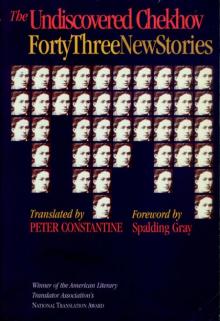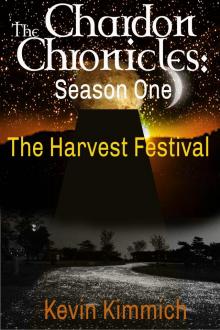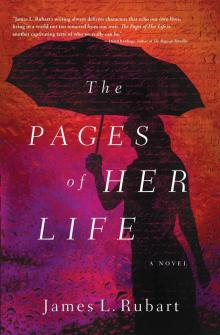The Undiscovered Chekhov: Forty-Three New Stories


Author: Anton Chekhov
Category: Other
Published: a long time ago
Series:
View: 153
Read OnlineThe Undiscovered Chekhov gives us, in rich abundance, a new Chekhov. Peter Constantine's historic collection presents 38 new stories and with them a fresh interpretation of the Russian master. In contrast to the brooding representative of a dying century we have seen over and over, here is Chekhov's work from the 1880s, when Chekhov was in his twenties and his writing was sharp, witty and innovative.
Many of the stories in The Undiscovered Chekhov reveal Chekhov as a keen modernist. Emphasizing impressions and the juxtaposition of incongruent elements, instead of the straight narrative his readers were used to, these stories upturned many of the assumptions of storytelling of the period.
Here is "Sarah Bernhardt Comes to Town," written as a series of telegrams, beginning with "Have been drinking to Sarah's health all week! Enchanting! She actually dies standing up!..." In "Confession...," a thirty-nine year old bachelor recounts some of the fifteen times chance foiled his marriage plans. In "How I Came to be Lawfully Wed," a couple reminisces about the day they vowed to resist their parents' plans that they should marry. And in the more familiarly Chekhovian "Autumn," an alcoholic landowner fallen low and a peasant from his village meet far from home in a sad and haunting reunion in which the action of the story is far less important than the powerful impression it leaves with the reader that each man must live his life and has his reasons.
Many of the stories in The Undiscovered Chekhov reveal Chekhov as a keen modernist. Emphasizing impressions and the juxtaposition of incongruent elements, instead of the straight narrative his readers were used to, these stories upturned many of the assumptions of storytelling of the period.
Here is "Sarah Bernhardt Comes to Town," written as a series of telegrams, beginning with "Have been drinking to Sarah's health all week! Enchanting! She actually dies standing up!..." In "Confession...," a thirty-nine year old bachelor recounts some of the fifteen times chance foiled his marriage plans. In "How I Came to be Lawfully Wed," a couple reminisces about the day they vowed to resist their parents' plans that they should marry. And in the more familiarly Chekhovian "Autumn," an alcoholic landowner fallen low and a peasant from his village meet far from home in a sad and haunting reunion in which the action of the story is far less important than the powerful impression it leaves with the reader that each man must live his life and has his reasons.
 The Chardon Chronicles: Season One -- The Harvest Festival
The Chardon Chronicles: Season One -- The Harvest Festival Ultimate Taboo Box Set 1
Ultimate Taboo Box Set 1 The Pages of Her Life
The Pages of Her Life Kidnapped by Bigfoot
Kidnapped by Bigfoot The Layover
The Layover The Prelude of Ella and Micha (The Secret 0.5)
The Prelude of Ella and Micha (The Secret 0.5) Hero
Hero Send for Me
Send for Me